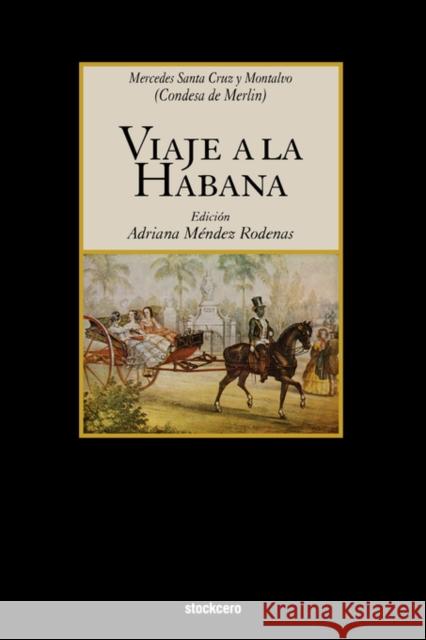Viaje a La Habana » książka
Viaje a La Habana
ISBN-13: 9781934768174 / Hiszpański / Miękka / 2008 / 144 str.
"Viaje a la Habana" (Madrid: 1844) written by the Countess of Merlin, nee Maria de las Mercedes Santa Cruz y Montalvo, is one of the most seductive texts of Spanish American Romanticism, forerunner of the Caribbean "journey to the source," as it narrates the re-encounter with colonial society from which the author had parted soon after adolescence. Focused on colonial Havana, "Viaje a la Habana" traces the topography of the colonial city, considered the jewel of the overseas Spanish colonies, as the narrator wanders along childhood scenarios remembering relatives and long-lost family members. Merlin's African wet nurse, her uncle Montalvo, mulata divas, Creole women, even commercial agents, are evoked with poetic emotion, while the presence of other groups that compose early Cuban nationality can be felt in the background: portraits of the sugar aristocracy are sketched along with poetic renditions of "guajiros" in the countryside. Part of a longer work dedicated to "La Havane," published the same year in Paris, "Viaje a la Habana" is an editorial enigma as there is no mention of a translator, nor do we know for sure why the Countess chose to cut down the longer French edition. With a foreword and biographical notes by Gertrudis Gomez de Avellaneda, "Viaje a la Habana" is the Countess of Merlin's most important work, continuing the autobiographical production begun with by "Mes douze premieres annees" (1831), translated by Agustin de Palma as "Mis doce primeros anos" (1838). The second memoir, "Souvenirs et Memoires," (1836) follows young Mercedes reunited once more with her family in Madrid; her marriage with general Antoine-Christophe Merlin (1771-1839) during the French occupation of Spain; and the couple's dramatic escape through the Pyrenees after Bonaparte's defeat. During her married life (1812-1839), Mercedes Merlin establishes a highly successful literary salon in Paris, a role that sparks her transformation into a writer. Despite passing the majority of her adult life in France, Merlin never looses her strong ties to the island and her concern about its progress and welfare, a recurring topic both in "La Havane" and "Viaje a la Habana." Stemming from the author's hybrid imagination as Cuban and French, "Viaje a la Habana" expands our understanding of Spanish American Romanticism, as it reveals the prolonged colonial condition of the island of Cuba at the moment of awakening to a national conscience. As travel writing, this autobiographical text reverts the conventions of the eighteenth-century "grand tour" as it replaces the exoticism of Italian landscape and ruins with the faraway geography of the Caribbean island. In this edition, Professor Adriana Mendez Rodenas underlines the foundational character of the text, adding critical notes and bibliography that helps the modern reader understand and enjoy Mercedes Merlin's delightful prose.











